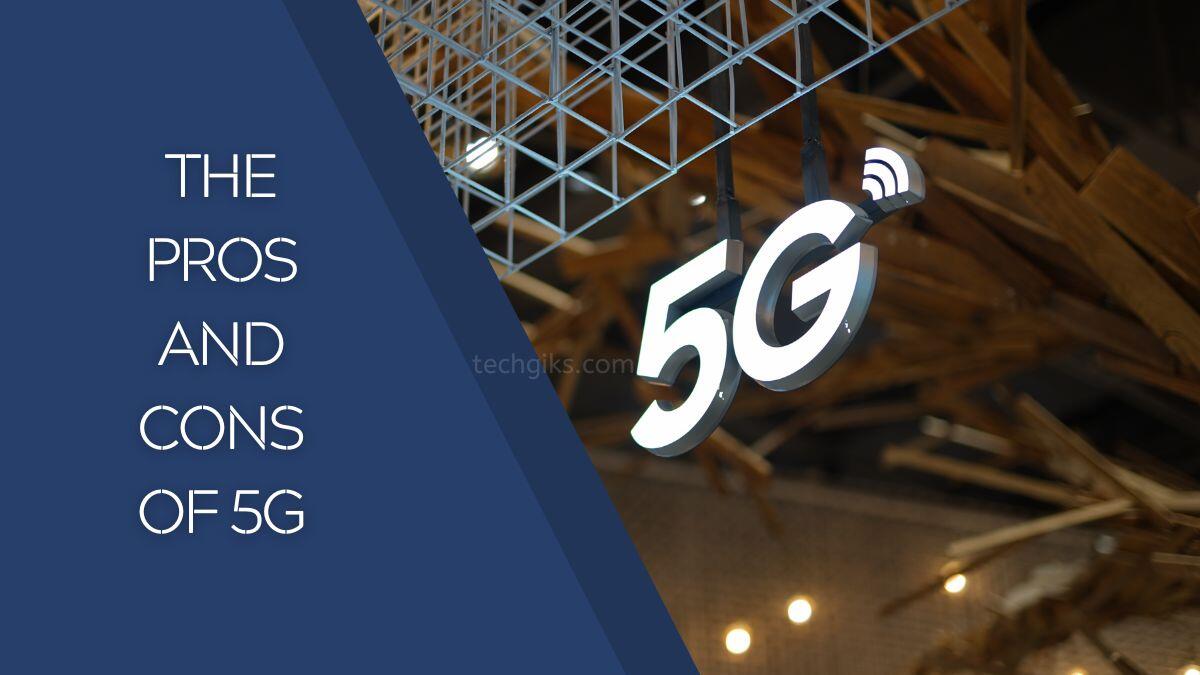The Pros and Cons of 5G
The Pros and Cons of 5G – You’ve probably heard many talks recently about 5G. So what is 5G, you ask? Simply put, 5G is the next generation of wireless technology. It’s designed to offer faster speeds and improved reliability for wireless communication. Sounds great so far, right? And in many ways, it is. But like all new technology, 5G has its share of pros and cons. This post will look closely at both sides of the equation.
What is 5G?
You may have heard about 5G, the next generation of wireless technology. But what is it, and what are the pros and cons? 5G is a cellular network that offers faster speeds and more reliable connections than previous generations. It means you can download and stream content faster, and your phone will stay connected even in crowded areas. However, 5G is still in development, with some potential downsides. For example, it could be more expensive than current networks and health risks may be associated with using it.

What are the Pros of 5G?
There are plenty of pros to 5G. Faster download and upload speeds, for one, will make our lives a lot easier. No more waiting forever for a movie to download or a webpage to load! 5G will also make our lives more connected. With 5G, we can connect to the internet anywhere, anytime. In addition, it will be handy for augmented and virtual reality, which require a stable connection to work correctly. Another pro of 5G is that it will help us reduce our carbon footprint. With 5G, we can rely on smart devices and appliances to regulate our energy usage, which will help us save energy and money.
What are the Cons of 5G?
There are a few potential cons of 5G. First, the infrastructure needed to support 5G is expensive, increasing consumer prices. Second, there are concerns about 5G’s health risks, as the radio frequency waves are more powerful than those used in 4G and earlier networks. And finally, some worry that 5G will give telecom companies too much control over their lives.
Who will have access to 5G?
So, who will have access to 5G? Well, that’s still up in the air. Telecom companies are lobbying hard to get their hands on the 5G spectrum, hoping to roll out the technology soon. However, it still needs to be determined which parts of the world will first have access to 5G. Telecom giants like Verizon and AT&T are champing to get 5G up and running. Still, there are concerns that the technology could create a two-tiered system where only wealthy people can afford fast, high-quality connections.
What’s more, 5G could seriously impact our environment. The vast amount of data that 5G networks will transmit will strain our already overloaded telecommunications infrastructure. And with reports that 5G signals could be up to 1,000 times more potent than 4G signals, there’s a real danger of harmful radiation emissions from cell phone towers and antennas.
When will 5G be available?
So, when will 5G be available? That’s a good question! Unfortunately, there’s no exact answer at this point. Some experts say it should be out by now, while others believe it will fully roll out in 2025. But one thing is true: 5G is coming, and it will change how we use the internet forever.
How will 5G affect our lives?
So, what are the best and worst sides of 5G? On the plus side, it will be much faster than 4G, with download speeds of up to 1GB per second. In addition, it means that we can download movies, TV shows and music in seconds, and there will be no lag time when playing online games or streaming content. On the downside, 5G will use a lot of data, so we may have to start paying more for our monthly plans.
Building the infrastructure needed for 5G will also be costly, so service providers are likely to increase their prices. And finally, there are concerns about the health risks associated with 5G, as the radiation it emits is much higher than that of 4G.
Conclusion
5G is the next big thing for mobile networks, and there are several pros and cons of 5G. On the one hand, 5G offers much faster download speeds and improved latency, which is great for gamers, streaming fans, and busy professionals. On the other hand, 5G does require new infrastructure, which could be expensive and time-consuming to install.
What do you think? Are the pros of 5G worth the cons? Or is this technology best left alone?
